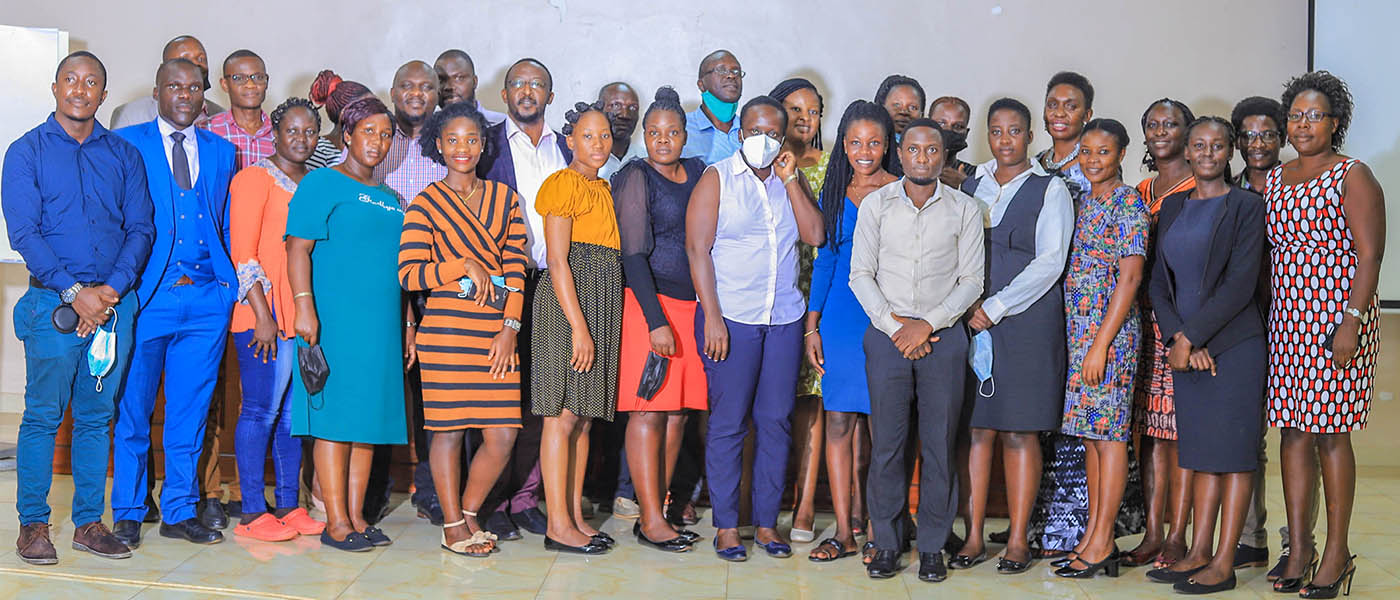Land and Equity Movement in Uganda (LEMU) LEMU is a national NGO that has made significant contributions towards the recognition and protection of land rights under customary tenure at both local and national levels in Uganda. Based on grounded action and research since 2003, LEMU has effectively engaged the various stakeholders (state, non-state and academia) in an attempt to reduce inequality in (the understanding of) customary land rights and prevent dispossession of the most vulnerable sections of the society such as women, youth, the elderly, the indigenous people and the rural poor. LEMU aims at mobilizing the collective power of the vulnerable sections of the population and empowering them to analyze their own situation and engage effectively with actors and factors that undermine their rights to land and other natural resources. One of LEMU’s major achievements at the national level has been the successful and significant contribution to the advocacy for the recognition of customary land tenure as equal with other land tenure systems in Uganda. LEMU comes uniquely placed as a single-issue organization focused on land, but is currently creating new synergies and strategies to consider land from a more holistic perspective. To achieve this, LEMU has begun to work around the links between land and other thematic areas, these may include the drivers of conflicts around land (such as investments, climate change) or opportunities that come from securing land (such as increasing productivity). Over the years, LEMU has mainly partnered with clans/traditional institutions, state agencies in the land administration and land justice arena, and customary landowners to generate key areas of consensus around what customary land is, what it is not and how security of tenure can be achieved within the realm of customary land tenure.
Over the years, LEMU has mainly worked in the regions of Lango, Acholi, Bunyoro, West Nile, Teso, Karamoja and around key National advocacy issues regarding land facilitating the process of clarification and documentation of land governance under customary land tenure and these resulted to the documentation of “Principles, Practices, Rights and Responsibilities (PPRR)” for customary land management in these regions. LEMU also undertook the implementation of Community Land Protection as an approach for sustainable land and natural resource management in Lango and Karamoja sub-regions from 2009 until 2016 (see links to relevant publications; https://namati.org/resources/protecting-community-lands-resources-in-africa-grassroots-advocates-strategies-lessons/; http://namati.org/programs/land/; https://land-in-uganda.org/research/evaluating-the-impacts-of-protecting-communal-lands-and-resources-comparing-the-impacts-of-state-and-customary-land-justice-systems/ ). The key strategies and learning from the community land protection in Lango region was scaled-up and adapted to the Karamjora context from 2017 to date. Some of the key areas of interventions LEMU has had on land in the Karamoja region (Moroto, Napak, Nakapiripirit and Amudat districts) since 2017 includes but not limited to; identification of communal grazing areas, development and dissemination of the Principles, Practices, Rights and Responsibilities of customary-communal land management, development of the principles and rights into district ordinances, community education and awareness on land rights, laws and policies, providing options for improving security of tenure through formation of communal land associations, documentation of community rules for grazing land management, election of leaders of grazing land committees, conflict resolution and boundary demarcation of communal grazing lands using technologies such as GPS maps and concrete pillars.
LEMU is a member of the International Land Coalition (ILC) and currently the host of the ILC initiative of the National Engagement Strategy (NES-UG), a platform that brings together all land actors in Uganda together for key advocacy issues with the aim of attaining a people-centered land governance. LEMU is also an active member of other national and regional networks such as the Legal Aid Service Providers’ Network (LASPNET), and the Northern Uganda Land Platform (NULP). LEMU also made contributions to international land policy dialogues such as making presentations at the World Bank Land Conferences in consecutive years from 2015 to 2019.
Finally, LEMU is fully registered as a Company Limited by Guarantee (registration number 60601) and has a valid operational permit valid until February 2022 (permit number 3953). LEMU currently has four offices located in Kampala, Moroto, Soroti and Lira but works regionally in the regions of Karamoja, Lango, Teso and at the national level. LEMU is governed by a seven member Board of Directors and also has an International Advisory Board composed of land and development experts that guides the strategic intervention areas on the land question in Uganda, especially on the customary land question. LEMU also already has MOU’s and working relationships with District Local Governments within Karamoja region where it has current projects being implemented such as Moroto, Napak and Amudat.

